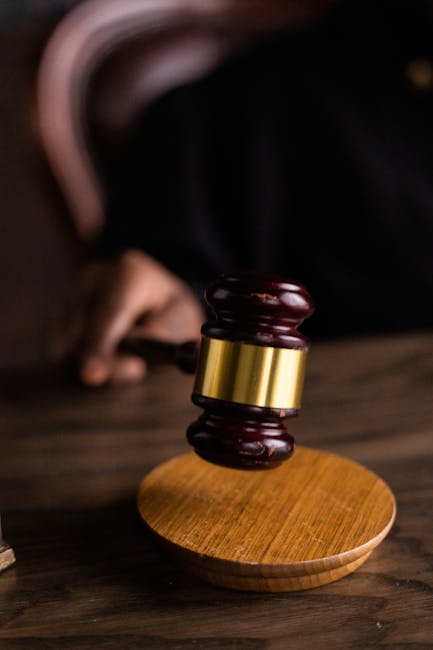 Photo from Unsplash
Photo from Unsplash
Originally Posted On: https://bippermedia.com/legal-steps-to-take-after-being-charged-for-manslaughter/
If you’re charged with a crime that involves the death of another person, you might be surprised to learn that murder is a much more complex crime than you thought. In Florida, there are various homicide offenses—some of which have subcategories that all lead to differing penalties. One of those charges is manslaughter.
If you’ve been accused of manslaughter, you must know what legal steps to take to go forward. In this article, we’ll define manslaughter and discuss those legal steps, as well as some of the defenses available to you.
What is Manslaughter?
Under Florida Statute §782.07(1), manslaughter is the act of killing another person through your actions, culpable negligence, or procurement without any lawful justification. You can be charged and convicted of manslaughter if the court proves that your recklessness, intentional misconduct, or failure to act appropriately has caused the death of a person—albeit not in a way that could be considered murder.
There are two different types of manslaughter under the law; voluntary manslaughter and involuntary manslaughter.
Voluntary Manslaughter
Often referred to as ‘heat of passion’, voluntary manslaughter happens when an individual:
- Is strongly provoked; and
- Kills in the heat of passion caused by provocation.
Voluntary manslaughter involves intentional killing while lacking the full criminal intent to qualify as a murder charge. This intent typically comes in the form of provocation that garnered a strong emotional response from the defendant.
Involuntary Manslaughter
Involuntary manslaughter, on the other hand, refers to unintentional homicide from reckless conduct or criminal negligence. It means that the alleged offender did not intend to harm the victim specifically but acted carelessly or recklessly that the state felt the need to punish them.
What Are the Penalties for Manslaughter?
Manslaughter in Florida is charged as a second-degree felony in the state. It is punishable by a maximum of 15 years in jail, a hefty fine of $10,000, and a probation period of up to 15 years.
Under Florida’s Criminal Punishment Code, manslaughter is assigned as a level 7 offense severity ranking. Moreover, there are various types of people for whom the state is entitled to increased protection due to their particular vulnerability or societal roles.
Manslaughter can be a first-degree felony with a punishment of up to 30 years in prison and $10,000 in fines if the alleged offender caused the death of any of the people below by culpable negligence:
- Elderly or disabled adult;
- Individuals under the age of 18;
- A paramedic;
- A firefighter;
- An emergency medical technician; or
- A law enforcement offer.
What Are the Legal Steps You Should Take After Being Charged with Manslaughter?
Manslaughter is a severe offense that can lead to steep prison sentences and hefty fines. If you’re arrested with a manslaughter charge, here are the steps you need to take:
1. Speak with an Experienced Lawyer
You will need to find and speak with an experienced and seasoned criminal defense lawyer as soon as possible. Practice your right to remain silent and avoid giving statements to the police or law enforcement handling your arrest.
Remember to remain polite and express your desire to have a lawyer present before you speak to them. Regardless of what veiled threats or promises they tell you, refrain from answering questions until you have your lawyer with you.
Reach out to a competent lawyer and discuss your next steps with them. Generally speaking, you will need to collect any information, documentation, pictures, or evidence that can support and strengthen your case.
2. Record Details of the Event
It’ll surely take months for trials or resolutions in a case like this before everything settles. Along the way, especially in the beginning, record and memorialize the events in as much detail as possible.
You will need to paint your attorney the entire picture of the event. You can provide the record to your attorney and have it with you to refresh your recollection and memory when you need it for the trial or in any form of testimony.
3. Search For Eyewitnesses
If there are any key witnesses, you or your lawyer should collect and gather their statements, especially while their memories are still fresh. It will be vital to determine their willingness and availability to testify on your behalf. It is also necessary to determine if their testimony will be detrimental or beneficial for your case.
If their statements are detrimental, see if their testimony can be excluded by one of the rules of the procedure. It is also possible to impeach it due to incapacity or lack of credibility.
4. Work With Your Lawyer To Form your Defense
Finally, it would help if you worked with your lawyer to form a strong and formidable defense. There is quite a long list of possible defenses your side can use in court. Some of them are based on violations of your constitutional rights. Others involve attacking the investigation’s flaws or the search warrants’ validity.
What Are the Possible Defenses For Manslaughter Offenses?
As mentioned, there are a few defenses your side can use in court. The most common and typical defenses for this charge are as follows:
- Self Defense – It is the justified use of deadly force. Your side can use self-defense to justify the actions that you took.
- Justifiable Homicide – Florida law defines justifiable homicide as the justifiable means of using deadly force while resisting an attempt made by someone to kill you or commit a felony crime against you.
- Excusable Homicide – Homicide is justifiable or lawful when:
- Killing is committed by misfortune and accident in doing any lawful act by lawful means with typical or usual ordinary caution without unlawful intent.
Killing occurred by misfortune and accident in the heat of the moment or passion, upon any sufficient or sudden provocation. - Killing is committed by misfortune and accident that leads to sudden combat, without any dangerous weapon used, and the killing does not occur cruelly or unusually.
Contact an Experienced Criminal Defense Attorney Now
If you are charged with manslaughter in Florida, the time following your arrest is pivotal to your case’s success. There is no substitute for experience and knowledge when defending yourself from charges and offenses of manslaughter.
A skilled criminal defense lawyer can help you thoroughly understand the legal and actual challenges and struggles of the case, including the legal steps you will need to take. Contact Hanlon Law Tampa today for a free consultation. Don’t waste time—start collecting evidence and building a strong case now that will stand up in court.
Call us today to set up a free consultation.
Hanlon Law
210 N Pierce St
Tampa, FL 33602
(813) 228-7095
https://www.criminalattorneytampa.net





